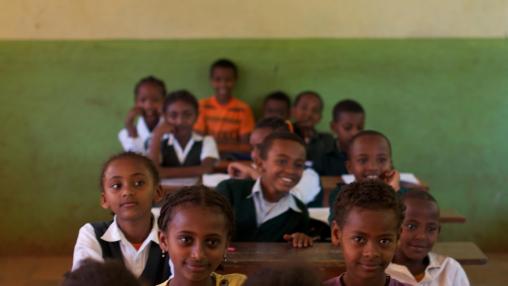
Aspirations and Poverty
This week is the World Bank’s annual conference on development economics. One of the papers being presented is by my colleague Kate Orkin (together with co-authors Tanguy Bernard, Stefan Dercon and Alemayehu Taffesse) and takes a look at a video intervention and its impact on aspirations among poor folks in Ethiopia. In particular, what Kate and her co-authors are asking is: can we shift aspirations and behavior by showing people more of what is possible?
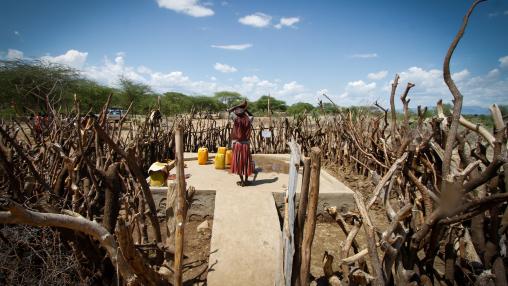
2020 Conference Calls for Renewed Emphasis on Global Resilience
Resilience must mean more than simply bouncing back from negative shocks: that is the message from last week's 2020 Conference in Addis Ababa, Ethiopia. The conference, themed "Building Resilience for Food and Nutrition Security," provided a new definition of resilience, one that focuses on empowering individuals, households, and communities to become better off than they were before the shocks occurred.

Harvesting Better Access to Information
A farmers’ success depends on more than good weather, healthy soil, and proper seeds. Good farming also involves a series of decisions: how much to plant each season, whether to invest in new crops, which markets to sell to. The right decisions can mean the difference between a profitable harvest and a net loss in farm income. Farmers make these decisions based on their knowledge of prevailing market prices, and supply and demand trends based on produce quality.
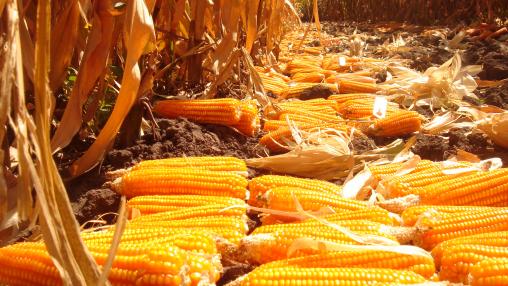
Maize Bumper Crop Triggers Reassessment of Ethiopia’s Cereal Export Ban
Eight years ago, the Government of Ethiopia placed an export ban on maize and other major cereal crops. At the time, Ethiopia’s grain prices were three times higher than those on international markets. The government saw the price hikes as a symptom of trade and not high inflation rates, among other factors. But in 2013, higher-than-average Kiremt rains spurred projections of a bumper maize crop, which triggered the Ethiopian Agricultural Transformation Agency (ATA) to consider advising the Ministry of Agriculture (MoA) to lift the export ban for the 2014 marketing season.
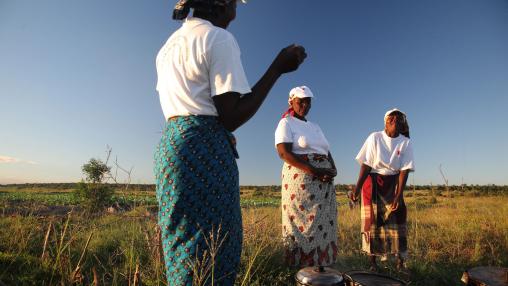
Gender and Land in Mozambique: Who Holds the Power?
At first glance, it may seem that women in northern Mozambique might enjoy more power than women in other places, at least in the agricultural sector. In this region, land is often passed through matrilineal rather than patrilineal lines. And since the enactment of the Mozambique Land Law in 1997, one might expect that women here are better able to access land and retain control over land they bring with them into marriage.
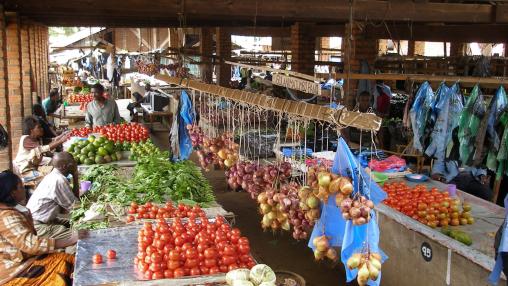
Higher Food Prices Are Good for the Poor . . . In the Long Run
Since the poor spend a greater share of their household incomes on purchasing food, higher food prices must exacerbate poverty, right? Wrong . . . at least over the medium term. In my most recent paper, I find that the opposite is true: higher domestic food prices predict reductions in poverty. The methods in this paper are fairly simple. I take World Bank national poverty estimates for a broad swathe of countries and regress changes in poverty against changes in domestic food prices (the ratio of the food CPI to the non-food CPI).
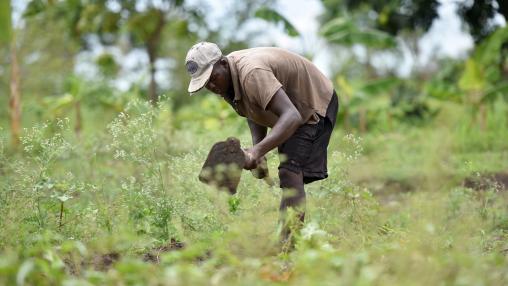
Soil Maps Could Provide Key to Ethiopia's Food Security
Fertile soil is one of the basic building blocks of agricultural productivity. In order for crops to grow properly, soils need to contain the proper nutrients; unfortunately in many areas of the world, soils have become depleted of their nutrients, leading to decreased productivity.

Hunger and the Post-2015 Agenda: IFPRI Releases 2013 Global Food Policy Report
With less than two years to go to meet the Millennium Development Goals, how has the world done on its goal of halving hunger? According to the IFPRI 2013 Global Food Policy Report, released this week, much work remains. While the number of chronically hungry people has declined from 1 billion to around 842 million over the last 30 years, this number is still unacceptably high. One in eight people around the world suffers from hunger on a daily basis.

Working Toward a Brighter Future: Can Public Works Programs Help End Extreme Poverty?
Extreme poverty and gender inequality are two of the most daunting challenges faced by the developing world. To tackle these challenges, many policymakers are turning to public works programs. Such programs can help governments provide stable, balanced wages to households in need, while at the same time investing in important infrastructure, like roads and irrigation systems, that can promote economic development in the future. But these programs are not without controversy.
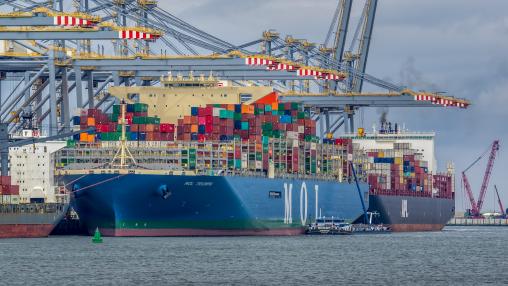
EU: Trade-distorting Farm Support at New Low
The EU’s trade-distorting domestic farm subsidies were lower in the 2010-11 marketing year than in any previous year, according to new figures that the 28-member bloc has reported to the WTO.
Domestic support payments that are classed as distorting trade fell to €11 billion, the EU says - one-sixth of the level they were at a decade ago, before the European Commission introduced successive reforms aimed at “decoupling” farm subsidies from farmers’ production decisions.